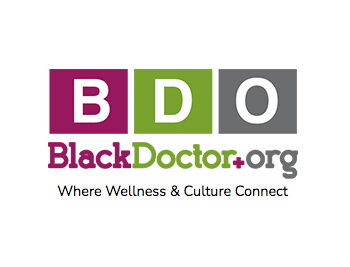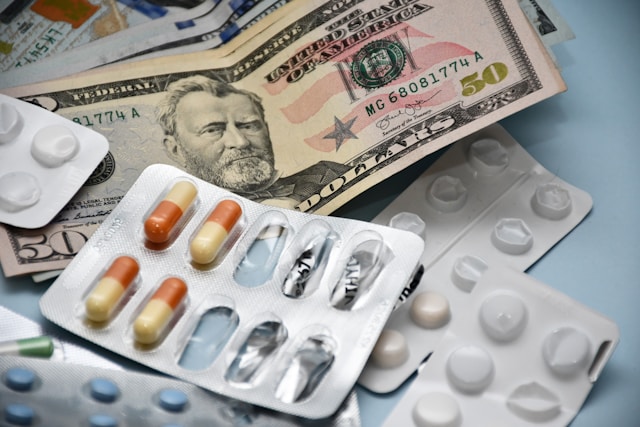For 17 years, BlackDoctor.org (BDO) has been the go-to place for education on public health in the Black community. As CEO Reggie Ware explains, listening to their audience is key to the organization’s success.

“The mission and purpose of BDO is to provide culturally accurate, culturally relevant health information to a population group that has typically been underserved in a number of different areas,” says Ware. “So, the goal is to provide a game plan for Blacks that want to live healthy, happy lives, and act as a trusted source of information. We developed the BDO platform in a way that speaks directly to Black communities in their own language.”
The organization’s reach has been astronomical. “The goal was to reach 2 million people a month,” explains Ware. “But I’m happy to say, we’re reaching 20 million people a month on our total platform, which includes our Facebook outreach, and then there’s 6.7 million people that actually visit the website proper.”
How did BDO’s reach get so wide? They ask, listen, and respond to the Black community about their health, rather than assume they know what is needed at every turn. Never was this tactic so impactful as it was during the COVID-19 pandemic.
How BlackDoctor.org is reversing distrust during COVID
“When COVID first came out, there was an overwhelming consensus within the Black community that they were not going to be as affected by COVID as other populations,” says Ware. “And so, we had to start educating people that this thing is going to go worldwide, and we’re probably going to shoulder most of the burden because of our comorbidities and so forth.”
Not only did BDO help the Black community navigate their specific social distancing challenges, but “only 10% of Blacks have jobs where they can stay at home, so we helped them figure out how to stay safe when they had to go to work every day.” They also helped turn the tide on vaccination rates in the Black community.
“This issue goes all the way back to Tuskegee,” explains Ware, referencing the government experiment to observe untreated syphilis in Black patients without their knowledge or consent. “There’s just an immense amount of distrust.”

“So our message became why we need to move past Tuskegee and this distrust, as well as how we can know that this vaccine is safe,” Ware went on to say. “So we brought in experts like Dr. Kizzmekia S. Corbett, who’s a Black woman, and she talked about her role in developing the vaccine, which went a long way,” continues Ware. “Eventually we found people saying, ‘Okay, she seems trustworthy.’ And the tide began to shift. But it took a gargantuan effort to galvanize Black people and get them to trust this process.”
But galvanize BDO did. When the vaccine first started coming out, BDO surveyed their audience to see how willing they were to get the vaccine and found that 70%-90% said that there was no way they were getting vaccinated. However, after a year’s worth of work, when BDO surveyed their audience again, they found that 70% said that their educational programs helped them make a decision about getting vaccinated, and 70% of their audience said that they were fully vaccinated.
“And these polls aren’t 2,300 people,” Ware points out. “These were big polls across our entire audience. So the numbers were truly reflective of the Black population.”
Clinical trial diversity and fundamental behavior change
The pandemic also reiterated another need in the Black community: increased clinical trial diversity.
“What we learned from COVID is that the BDO and the Black community can really impact clinical trials for the better,” says Ware. “During COVID, we had to have some really complicated conversations: how’s the vaccine free? How does it work? What makes it safe? And these are not simple conversations—these are complex and in-depth conversations.”
BDO built off of those tough conversations to not only better empower the Black community to take a strong stake in their health, but also move into a healthcare space that they had traditionally been wary of.
“We are bridging the success we had around the discussions on COVID and using the trust we built to try to move clinical trials in the Black community from a process that most Blacks want to stay away from—and for valid reasons—to a go-to strategy,” says Ware. “We explain how if you’re part of clinical trials, you’re able to get the best drugs, you get to participate in personal and community health care, and so forth. And so, we’re moving people along that continuum. It takes a lot of effort. I think that is what separates our organization from every organization in America.”
In short, trust is what separates BDO from so many other healthcare organizations trying to affect care in Black communities.
“We’ve grown with our audience, and we ask ourselves how to best accomplish the behavior modification that will help improve health in our community,” Ware explains. “If you need people to take action, how do you get people to take the right action? How do you get people to change the way they live for the better? Answering those questions is a powerful, powerful thing, and we’ve been able to do it, but it has taken 17 years of work.” Ware stresses, “I think that the best thing we do is listen. We have an idea of what’s going on, but we’re constantly polling and surveying our audience because we want to be certain and we want to be relevant every step of the way.”
“A lot of times,” Ware continues, “People say, ‘Okay, I want to be culturally competent.’ Well, I believe you can’t be 100% culturally competent, but you can be culturally sensitive, which means you’re constantly listening and responding. We don’t rest on our laurels. We’re constantly asking people what they need and how they feel about things.”
The future of Black health
As Ware explains, BDO has no plans to rest on its laurels. The goals for their future are as big as the successes of their past.
“The future, as I see it,” concludes Ware, “is that we have to focus on two main areas. One is our ultimate goal to get every Black family healthy, and we’ve got a good strategy to do that. A major element to that strategy is making sure that our people have access to the best drugs.”
“The second goal,” he continues, “is that we’ve got to get our audience to embrace wellness. Black communities live sicker and die younger. Wellness is the art of being healthy and prevention is key to that. So what does that include? It includes diet. It includes exercise. But it also means addressing wider issues like food deserts in Black communities and things like that.”
But just as important as it is for BDO to connect to the Black community in order for them to take a stake in their own health, BDO is talking to doctors and pharma, to help them understand how to prioritize and talk to the Black community.
“We continue to chip away at the status quo so we can have more pharma companies partner with us from a business perspective,” says Ware. “This increases their business and helps them understand a major pool of untapped consumers and their needs. Black communities have the highest incidence of disease in many areas, and yet, pharma is not prioritizing them nearly enough. We are working to change that.”
Undoubtedly, there is more work to do, but BDO is stepping up to the challenge. As Ware puts it, “We’re going to do what we’ve got to do.”




